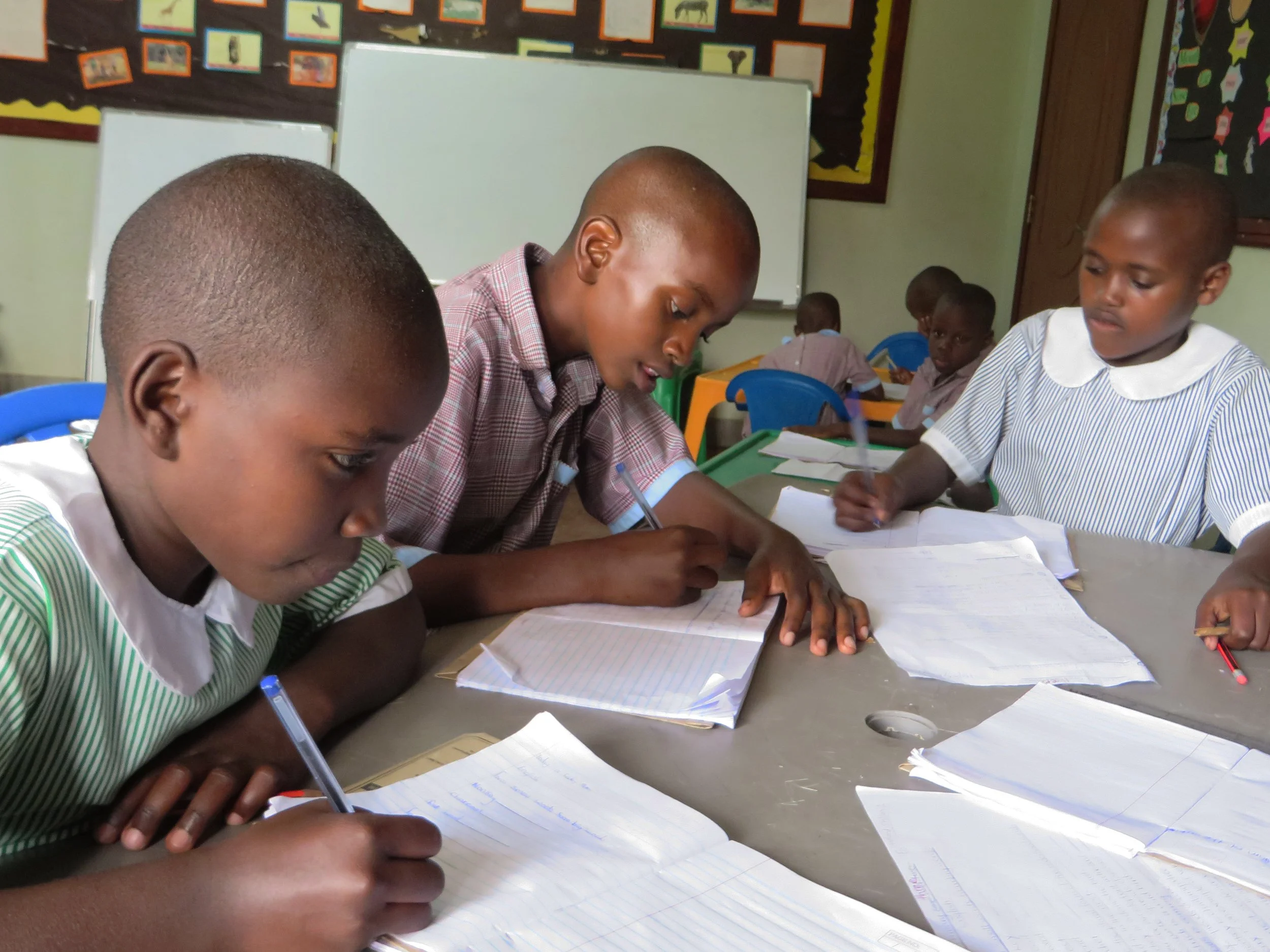Education
Education is at the heart of everything we do. It is vitally important to all children and adults in Uganda - it gives them hope, and provides an opportunity to break the cycle of disadvantage and poverty.
Even though government schools provide "free" education, the cost of uniforms, exam fees, school meals and scholastic materials often mean that parents cannot afford to provide "free" education for their children. UNICEF figures from a study in 2015 state that 477,000 children are not receiving a Primary Education in Uganda, with around 28% of children not completing the full seven years of Primary Education.
Pre-School Education at the Children's Home
Teacher Mable (Child Support Officer) is a qualified teacher. She works with the pre-school children and those receiving Temporary Care, preparing them for school and getting them used to a classroom environment. Mable is loved by the children and you can often hear excited screams of "Teacher Mable, Teacher Mable" coming from the young children.
In-School Education
We provide education at local schools for all children at the Children's Home. Social workers visit the schools to ensure that the children are progressing well in all subject areas. After school, Mable works with children at the Children's Home while they do their homework.
Education Reunification Support
Children who have been in residential care for longer than six months and who are then fostered, adopted or reunified with family members often need education support for their fees, uniforms and/or scholastic materials. We provide this financial support which enables them to continue their education, giving them opportunities to break the cycle of disadvantage and poverty. Social workers assess and monitor the children and their families.
If you would like to know more about supporting a child's education, please click here
Community Education Support Project (CESP)
21 children in the local community are enrolled on the CESP scheme, where financial support is given so that they can receive an education. This scheme is overseen by Emmanuel Semuko (Field and Education Co-ordinator and Social Worker).
Health Education
All children at the Children's Home are taught about the importance of a good diet, clean water, hygiene, and other age-related issues. When children are being tested for malaria, the staff often take the opportunity to talk about the cause of malaria and how to protect against it.
Parenting Education
Prior to any child being fostered, adopted or reunified, social workers spend time with the family talking about their responsibilities as parents, and answering any questions they may have. Social workers continue to monitor placements, and are always available for support.

